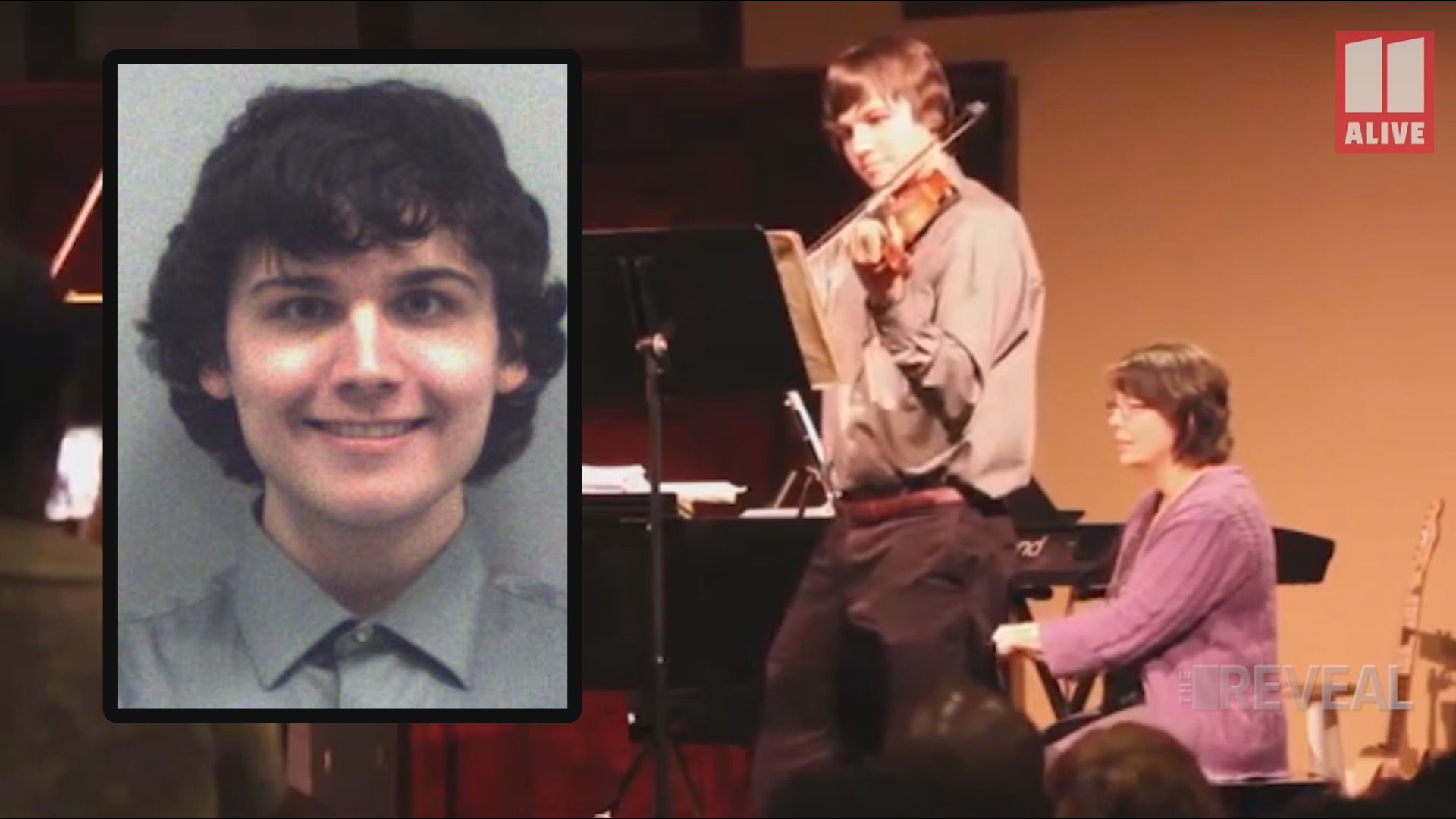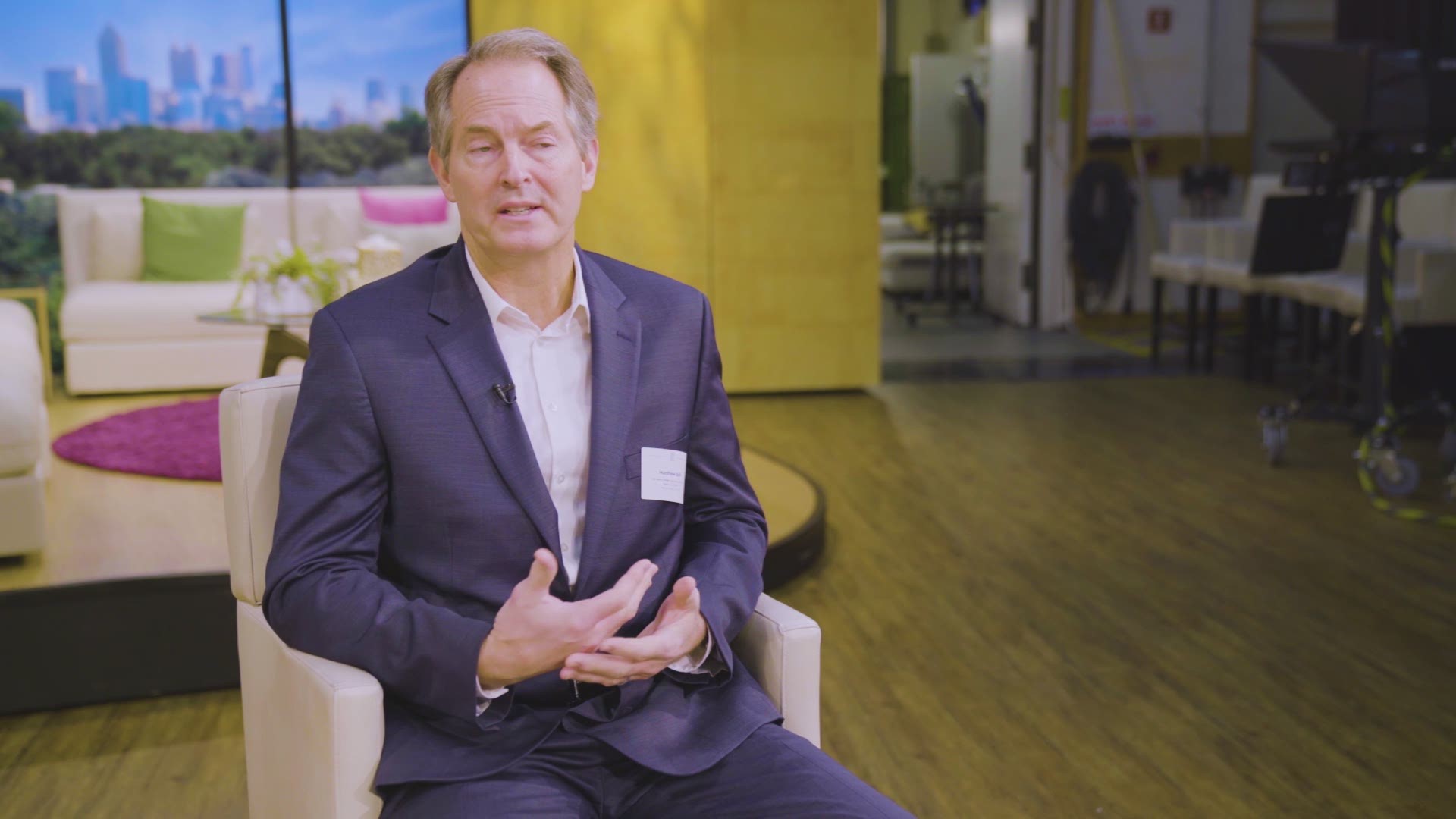We’ve heard a lot about school threats in the past few years. The concern is real. In 2017, David Warth was arrested for sending a threatening email to a former teacher. David insists he did not do it, prompting his parents to give Investigator Rebecca Lindstrom detailed access to David’s school records, therapy notes, and court documents. 11Alive is not diminishing the fear felt by the teacher or the pressure on schools to keep students and staff safe. Neither the teacher involved or the district could offer their perspective due to legal limitations and the pending trial. But the family says they are talking, in hopes the community will gain a new understanding of the complexities of these accusations and better understand students with special needs.
David Warth doesn’t dodge questions, but he answers them in such a way, he’s often hard to understand. The Reveal investigator Rebecca Lindstrom has now visited him at the Gwinnett County jail twice. He’s been held for more than two and a half years, denied bond, charged with aggravated stalking and intimidating a witness.
David says he is innocent and clearing his name matters more than getting out of custody. His attorney has filed a motion to suppress evidence related to his arrest, calling the action unlawful and a motion to throw out two counts in the indictment.
But prosecutors aren’t backing down and the teacher involved, says she still lives in fear.
Before Lindstrom's visit in September, David spent several weeks at Georgia Regional Hospital. His family believes he was under evaluation to determine if he is competent to stand trial. His attorney filed a motion to seal the results.
During the visits, David comes across as smart, opinionated -- yet pleasant and likable. He wants to clear his name. He wants to focus on his future. He wants to be understood. But that’s not always easy.
David is on the autism spectrum. His parents believe his excellent memory, perfect pitch, and musical talents are characteristic of savant syndrome.

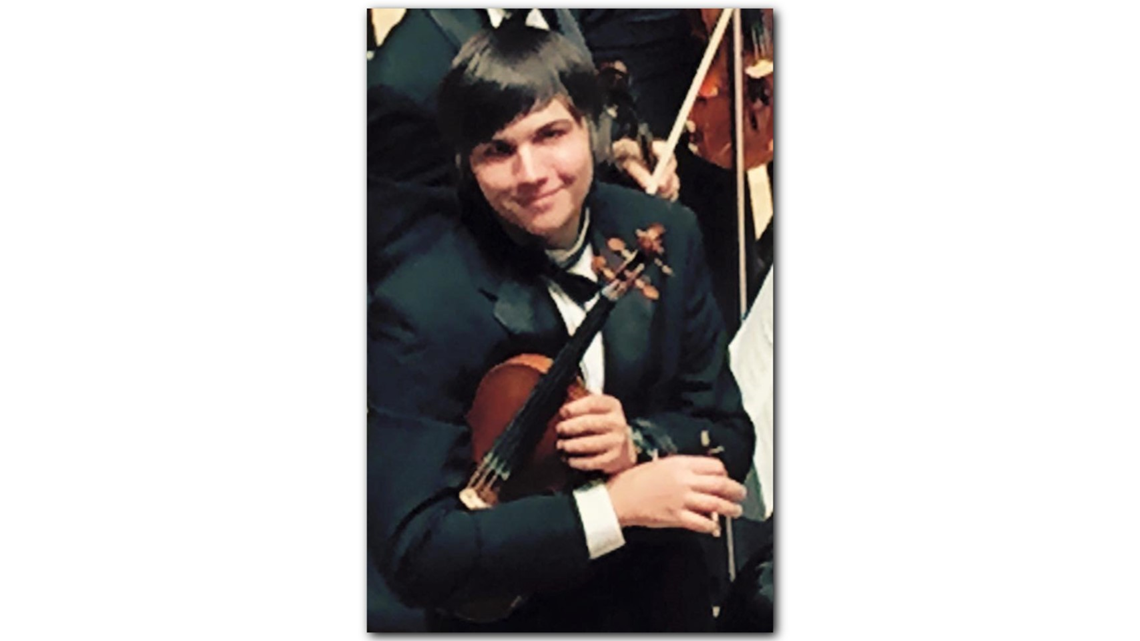
The charges against him stem from a letter received by one of his former high school teachers, threatening to kill her and her family if certain demands are not met. David’s name is never mentioned, in fact, the letter states that six different people helped write it. But police and prosecutors believe there is only one author: David.
Looking back, you can see the events that led to this moment. You can see all the chances his parents, teachers and the school could have altered the outcome. But that would have required us to listen. Not just hear, but actually listen.
Autism is a communication impairment.
WATCH | The Reveal airs Sundays at 6 p.m. on 11Alive
That breakdown in communication started five years ago when David first went into a guided study program in high school. He spent two years receiving instruction from the special education teacher at the center of the threat.
David, not wanting to be defined by his autism diagnosis, didn't want to be in the class. But the school and his parents believed David needed to improve his social skills.
In one case, David told his orchestra teacher, with whom he cherished, that he wanted her to suffocate and die. A conference was held and David apologized. He explained the statement was made at a time of great stress and wasn’t meant literally.
Indeed, music was David’s life. David plays drums, piano, violin and sings. He has been making music as long as his parents can remember. He was recognized by the Archdiocese of Atlanta for a Catholic mass composition, Gloria. He played in the UGA and UNCG Honors Program, the Gwinnett County Youth Symphony and even performed as a freshman and sophomore with the Emory University Symphony.
In the summer before his junior year in high school, he wrote a 33-page, 14-minute symphony, for the philharmonic orchestra to perform
“His music is touching. He somehow reaches the chords of your emotions,” describes his mother, Deborah Warth.
David’s grades would make any parent proud. He was admitted into Emory with a full scholarship, with a 2310 SAT score. At the time of his arrest, he was a music scholar with a 3.9 GPA, according to his mother.
David says that his success is despite the time he spent in his guided study because instead of helping him socially, he says he left deeply hurt. From the first class, he felt the teacher’s style of communicating with him was demeaning. He says he tried to tell her, but his words were taken as defiance.
Even after his parents agreed to end his IEP, David still carried his hurt feelings.
“Individuals with autism can often times have a rigid response style and get really locked into a particular way of thinking,” said Dr. Matthew Doll, a psychologist specializing in autism evaluation and services at the Treffert Center.
Dr. Doll works with the Treffert Center in Fond du Lac, WI. The center takes a holisitic approach to the diagnosis and treatment of autism, behavior and communication disorders. The center builds on the work of Darold Treffert, MD, a researcher in autism, hyperlexia, and savant syndrome.
“There’s probably not a person in our audience or a person that we don’t know that you can’t recall something that someone said that was hurtful to you. Now lay that on top of having a memory that locks everything in, that really and truly enhances that experience…and it’s hard to let go," says Dr. Doll.
For three months, David asked for a meeting with the teacher to clear the air and worked with a therapist to organize his thoughts. In the 35 minute meeting, recorded both by Warth and the school principal, David lays out his feelings and asks her to acknowledge his pain and apologize.
“I didn’t call this meeting for any reason to like, um, just to antagonize or hammer you with accusations but, um, what we will be talking about it quite painful to me,” David explained.
The two debate specific incidents and how both perceived the events walking through their time together. The teacher seems surprised by his criticisms and defends her efforts to help.

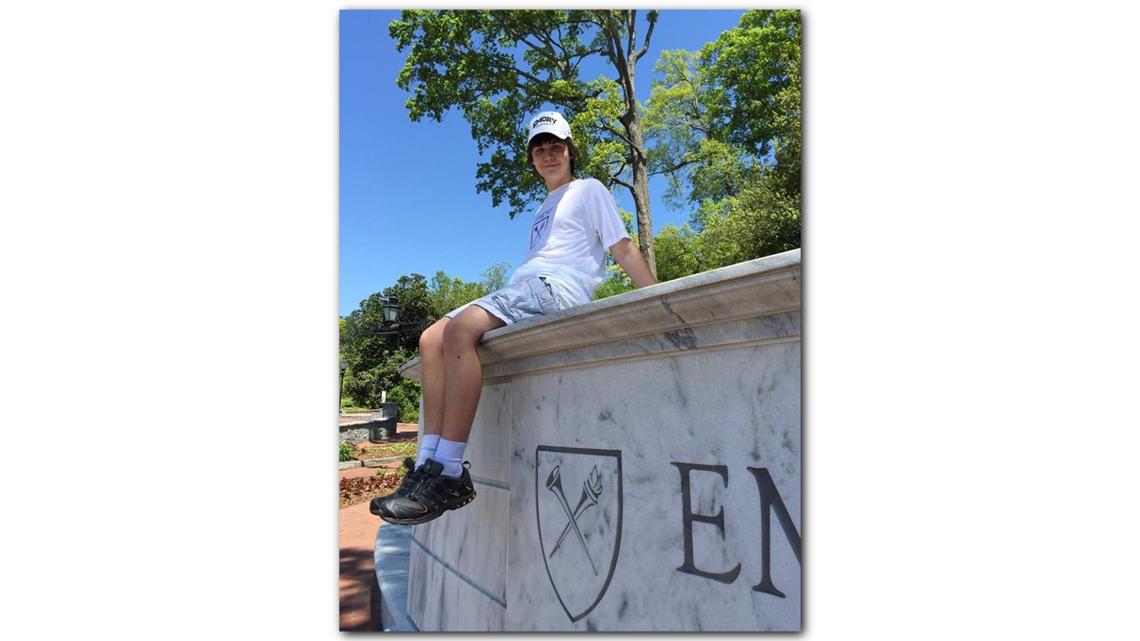
She reminded him he was in the class to learn better how to read social cues, and the conflicts mentioned just reinforced that need. But for David, it wasn’t what was said, but how it was said. He repeatedly tries to get his teacher to understand the distinction.
David: "Do you still not understand how it bothered me, though?"
Teacher: "I don’t think that you understand social perceptions, I really don’t. I think that somebody’s caring might come across differently than what you think."
But David’s parents say it’s the teacher’s perception that would then change their son’s life. Shortly after that meeting, the teacher reported David looking ‘strangely at her’ and she seemed to grow even more unsettled every time the two crossed paths.
The principal ordered Warth to stay away from the teacher, even though he had classes near the special education trailer. He didn’t know what he was doing to create so much tension, nor how to stop it.
His life at home was just as stressful. His mother’s childhood home had burned in a fire, and her parents had moved into the house. Her father, battling cancer, was experiencing medical complications.
In a heated exchange, his mother says she warned David that if something didn’t change soon, someone was going to think he wanted to kill his teacher.
His father, wondering for the first time if David might need medication to calm his anxiety, contacted their therapist. When he was told it would take six weeks to get an appointment with a psychiatrist who could prescribe the medication, Brian Warth relayed the concerns his wife had expressed earlier.
“All I could think of was, we’ve got to get something to calm down this anxiety. He’s going to have to get medication, we’re going to have to see a psychiatrist,” explains his father, Brian Warth.
But what the therapist heard and wrote down, was that David had threatened to kill his teacher.
“It didn’t even dawn on me what all that would lead to. I was just focused that he had all this anxiety,” recalled his father.
David was admitted to the hospital for evaluation, on the grounds he was harmful to himself or others. But the medical reports say during his evaluation, he denied any homicidal or suicidal thoughts and continued to reiterate the alleged threat – had all been a miscommunication.
But no one in authority seemed to listen.
In the police report and court records, the story continued to grow. Now David was going to the school to kill the teacher and there was a note he had repeated the threat to his therapist.

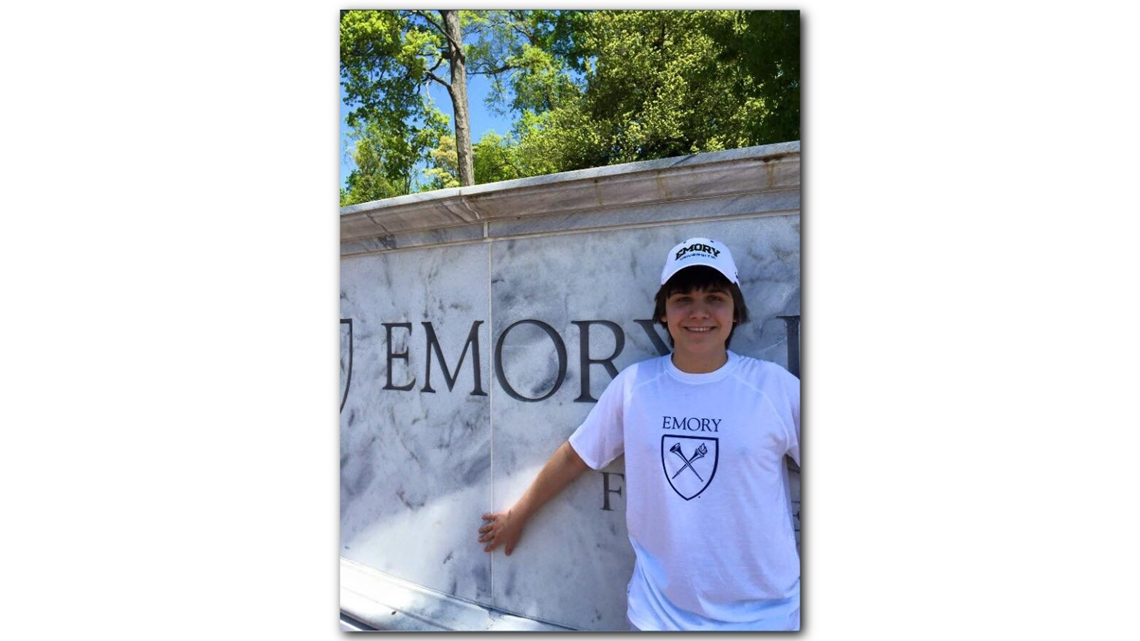
“Never. David never said that. David vehemently said I don’t know where this is coming from. That’s not me. I never said that to anybody,” said Warth’s mother.
But it’s that alleged threat that led the teacher to get a temporary protective order, or TPO, and David transferred to the county’s online campus. David says he didn’t fight either, because the school told him it would delay his graduation, causing him to lose his college scholarship.
“The idea that parents or kids had a choice, it’s really very coercive decisions,” says attorney Leslie Lipson.
At the time of our interview, Lipson worked with the Georgia Advocacy Office, a federally funded organization that helps protect people with disabilities. She has never met David, and is not involved in his case, but represented other children fighting to be understood, especially as schools turn to the police to enforce rules.
“The school is very compliance based for all kids. The move to zero tolerance, putting school resource officers in every school, we say it’s protecting kids. But we know that the data on violence is not any better, but the data on criminalization, especially for kids with disabilities and children of color is astounding,” says Lipson.
When David returned to campus more than a year after his graduation wearing a disguise that covered his face, police accused him of stalking. David had stopped at a CVS to make a purchase, went into the bathroom and came out wearing a fake beard, hair net, sunglasses, and baseball cap. He then went to the register to pay. His appearance seemed alarming, and the clerk called 911. So did a passerby.
A few moments later, David was seen entering the back of the high school campus. When stopped by a parking lot attendant, instead of explaining why he was there, he turned around to leave.
Police caught up with him down the road, demanding to know why he went to the school. According to the police report, David kept asking to call his attorney. Unable to reach one, and unsure given his past experiences at the school on what to say, he went silent and accepted arrest.
“If someone is in a wheelchair we can see that they need that wheelchair. When we see someone that’s blind, we understand they need certain accommodations. With individuals with different neurology such as autism, we don’t see that. So our default is to assume that they are doing a series of behaviors or difficulties on purpose,” explains Dr. Doll.
David doesn’t seem to understand why anybody cared about his fake beard and sunglasses. David says he’d worn similar outfits on campus before. During Lindstrom’s conversation with David in jail, he talked about wearing a cloak and even a Phantom of the Opera mask. He said it was just one more way he liked to express himself.
Later, when David was asked by his parents why he went to the school, he said he was trying to get his school records to apply for an honor society at Emory.
His parents say he was denied his accolades by going to the online school and wanted to prove his achievements. He also wanted to have notes and other records from his time in special education to defend himself against the accusations that led to his school transfer.
“I think that decision makers often unconsciously are afraid of people with disabilities especially autism because they think they are more likely to be violent, which is absolutely not true,” says Lipson.
But the fear that David was really going to find his teacher, led to another TPO. Upon hearing David had come on campus, the police report states the teacher “began to shake and break down in tears.” She told police, “I stay in fear of my safety because of him.” So, when a threatening email was sent to the teacher six days later, David became the prime suspect, which put him in violation of the court order prohibiting him from having any contact.
It’s unclear what hard evidence prosecutors have to prove David sent the letter. It is a long, chilling threat demanding certain actions be taken – or else. Police believe given David’s history with the teacher, he is the only one with motivation.
Sitting at a metal desk behind the glass wall that divides David from visitors, he tells Lindstrom he does not recognize 'the existence of any criminal proceedings'.
"The point of a trial is for a set of facts to be alleged and be proven at whatever proof standard they would use, whether that would be beyond a reasonable doubt or preponderance. But I haven't heard facts yet. And when I say facts, I mean facts with me in them," explains David.
Innocent or guilty there is no doubt the time this teacher and David spent together, have changed both of their lives forever.
David says he simply wants the legal troubles behind him so he can focus on creative writing, theater, and his music. He also has an online business he hopes can provide him financial support.
Even though he may not know the right words to say, or how to say it, David is still trying to be heard. The community, and perhaps eventually jurors, will have to decide if it is a message worth listening.
"I consider myself entirely lost in the process," says David.
He believes special education classrooms are being used too often as a place for schools to house students they don’t know how to handle, or properly teach. He called them a “dumping ground, where children are placed and then fall off the map.” David feels jail is just one more extension of the same social unease.
“I can’t help to think David fits a profile of a group of people that many people are afraid of. That is that he’s male, he’s on the autism spectrum,” says his mother, Deborah. “So, therefore, we can demonize people on the autism spectrum and their communication impairment alone makes it very hard for them to defend themselves.”
The Reveal is an investigative show exposing inequality, injustice, and ineptitude created by people in power throughout Georgia and across the country. It airs Sunday nights at 6 on 11Alive.

